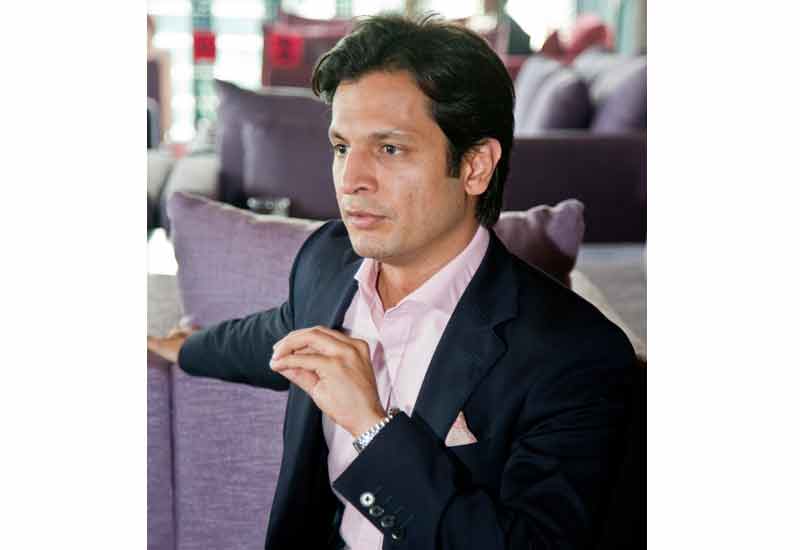So would Zuma never tie up with a hotel for future outlets?
Well, we would rent space from a hotel, and independently operate it.
We’ll be looking for a space for Roka [another outlet in the group’s portfolio, offering contemporary Japanese robatayaki cuisine], but we’d like to do something in Jumeirah Beach or Dubai Marina area, and obviously the whole alcohol licence thing comes into play there, as they do not have a DIFC. So for that we would have to tie up with somebody.
But if we did that, it would have to have a separate entrance, separate kitchen, separate delivery, otherwise it’s not going to work out.

| Advertisement |
Where else in the region are you looking to expand?
We’re not entirely sure yet; we want to do Beirut, we want to do Abu Dhabi, we want to do Dubai — but I think in Dubai right now we can wait, because there’s no point opening when the market’s already saturated, with all these new Japanese restaurants coming in.
Lebanon has a lot of people, there’s a lot going on, and they’re dying for top outlets.
We were looking at a site at Le Gray there, but they wanted something quickly and we couldn’t do it then because we were opening in Miami.
We haven’t set ourselves a timeline for expansion, though; I want to get comfortable with the brand and the region first. After Ramadan I think we’ll start looking.
But the important thing is that we’re here for the long run, and we want to stay true to our brands. We’re here to stay and we’re here to lead.
Looking at your new role, what have you been focusing on since your arrival here?
A lot of recruiting! I’m going to be here for a few years, and everyone I hire today is going to be working in one of our outlets tomorrow, so it’s important that whoever we hire now actually wants a career.
We have a large team — I think there’s 160 staff at Zuma Dubai.
Some staff want a career, some don’t, but if you’re opening a new place in under a year, you need those staff who want to be a part of that future — and this is why I’m hiring now, so that we can find the real superstars, the drivers, people who can progress.
And this is why we’re prepared to make that investment, because Zuma Dubai will be the training ground for our outlets across the Middle East.
In the UAE in general, the whole staffing issue takes up so much time — I have already spent a lot of time re-negotiating the staff housing contracts. It’s the sort of thing you never have to worry about in London, for example. It’s so different.
Then of course, because everyone’s on an ex-pat package we also have to manage their travel, their insurance, all that. And that takes up 30% of your time before you even get started.
But I do like to be involved in everything, and really have my finger on the pulse on what’s going on — and that’s important for the first few months, so I can really get a handle of what’s going on.
Is there anything so far that you’ve identified as an area you want to focus on in future?
Yes —consistency in suppliers is a huge one for us.
I don’t know if I can do it or not, but I’d like to get together with the other Japanese restaurants here so we can build up some buying power.
There are a lot of monopolies going on when it comes to suppliers, so I’d like to get together with other hotels and restaurants and really drive the buyers.
I appreciate that some operators in the UAE are in it to make a fast buck, but I think there are enough players in the field of Japanese cuisine to really strengthen our purchasing.
What’s your view of Dubai’s culinary status, compared to other international hubs?
Since 2000, when I was working here last, I think the region has come a long way. There are a lot more serious restaurateurs opening outlets here, which is a good sign.
But there is still a long way to go before you can compete with London, Hong Kong, Paris, New York — there is no comparison yet.
And I think the issue is partly about supplies, and partly about the number of restaurants that hotels here seem to have — they’ll develop a concept for the sake of having a concept, with no real thought behind it, and that kind of place can be very disappointing.
First comes the music, the décor, the style — and the actual food is somewhere way down the bottom of the list.
This is why concepts here keep coming and going; food has to be fundamental to any restaurant.
But I think, hopefully, we are now moving in the right direction.









 Search our database of more than 2,700 industry companies
Search our database of more than 2,700 industry companies









